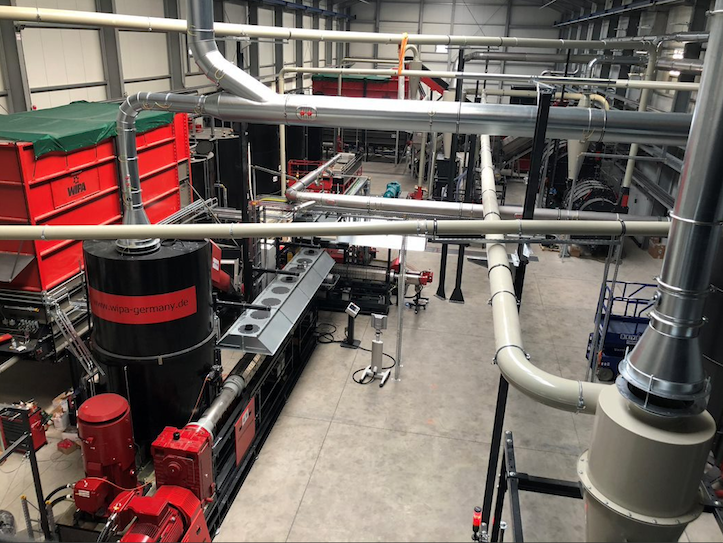 With a joint eight million euro investment in the construction of the Palurec recycling plant, Tetra Pak, together with Elopak and SIG Combiblock, is setting new standards in the recycling of beverage cartons. With the recycling of plastic and aluminium components now possible, the recyclability increases to well over 90 per cent.
With a joint eight million euro investment in the construction of the Palurec recycling plant, Tetra Pak, together with Elopak and SIG Combiblock, is setting new standards in the recycling of beverage cartons. With the recycling of plastic and aluminium components now possible, the recyclability increases to well over 90 per cent.
With yesterday's opening of the new Palurec GmbH recycling plant in Hürth near Cologne, it is now possible for the first time to recycle plastic and aluminium components from beverage cartons. This increases the recyclability from currently around 75 to well over 90 per cent. A success in which the main investor, Tetra Pak, together with Elopak and SIG Combiblock, invested eight million euros in development costs and four years of joint project work. The shareholder is the Fachverband für Getränkeverpackungen (FKN).
Stephan Karl, Managing Director of Tetra Pak DACH, welcomes the opening of the new recycling plant: "With Palurec, we have reached a major milestone in the recovery of the plastic and aluminium content of beverage carton packaging. This is a crucial step towards a low-carbon circular economy and part of our sustainability strategy towards becoming the most sustainable food packaging in the world."
The company made a high-profile presentation of its goals in March this year with the launch of the campaign "Natürlich. Karton" campaign. Thus, the company's own CO2 emissions are to be reduced to net zero by 2030 and in the value chain by 2050. At the end of the road is packaging made exclusively from responsibly sourced, renewable or recycled materials that is fully recyclable and CO2-neutral.
Innovative plant concept
With Palurec's new plant, beverage carton manufacturers are now able to process more than 50 per cent of the plastic and aluminium components from beverage cartons that accumulate in Germany into marketable secondary raw materials for a wide range of industrial applications. So far, this plastic-aluminium mix has been used in the cement industry as a low-emission secondary fuel.
In addition, the already very good climate balance of beverage cartons compared to glass and plastic bottles will once again improve significantly. According to a study by the Institute for Energy and Environmental Research (ifeu), milk beverage cartons already have an 84 per cent lower climate impact than disposable PET bottles and a 70 per cent lower impact than disposable glass bottles.
www.tetrapak.com
























































































